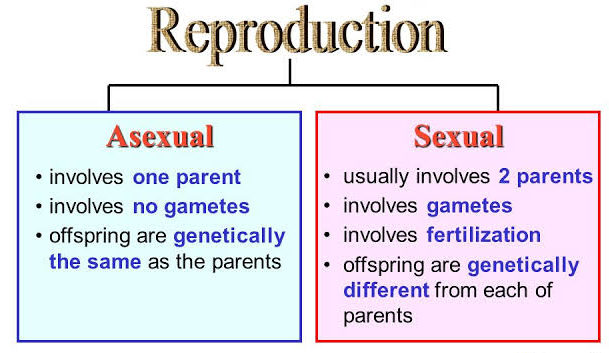
HOW DO ORGANISM REPRODUCE
- Reproduction is the process by which living organisms produce new individuals similar to themselves. It basically involves the making of copies of the blueprints of the body
- Reproduction ensures continuity of life on earth.
- Chromosomes in the cell contain the information for the inheritance of features which are passed from generation to generation in form of DNA molecules.
- so reproduction involves copying of DNA and other cell apparatuses. The copies will be similar to original and not identical.
- This property is Variation which is the basis and necessary for the evolution of living beings.
- Variations help the species to withstand drastic environmental changes, thus save the species from becoming extinct and promotes its survival for a longer time.
Type of Reproduction
Reproduction can be categorized in two types on basis of the number of parents evolving in the reproduction process.
- Asexual Reproduction
- Sexual Reproduction

- Asexual Reproduction is extremely useful as a mean of rapid multiplication. It is common in lower plants and animals.

